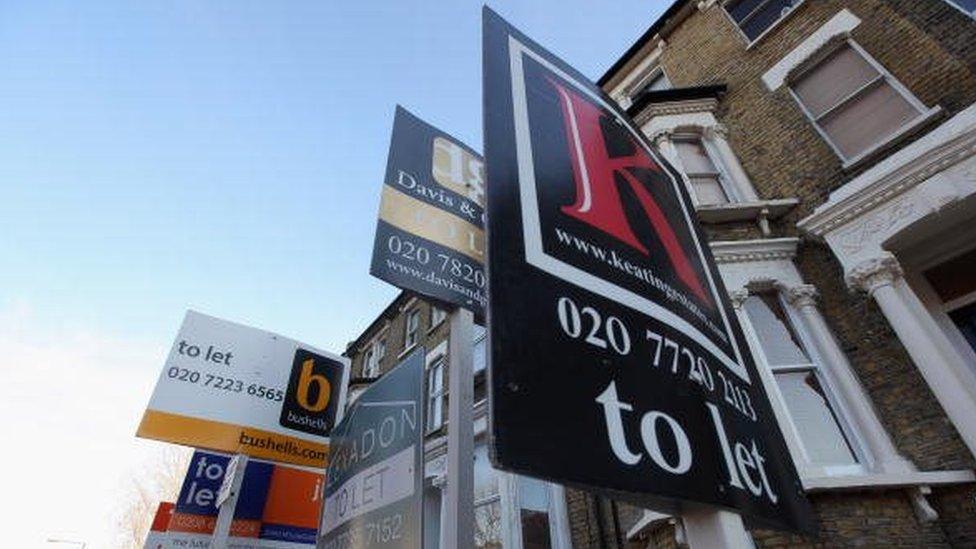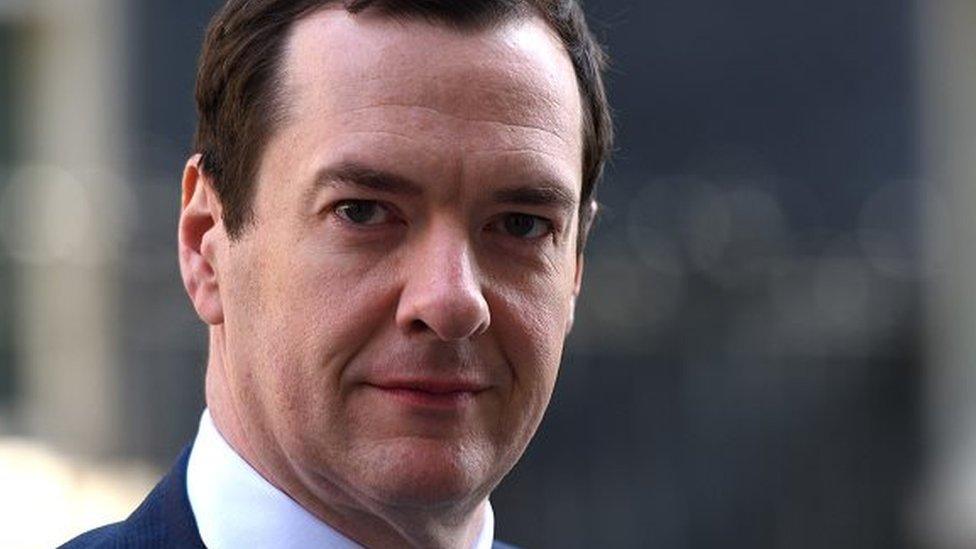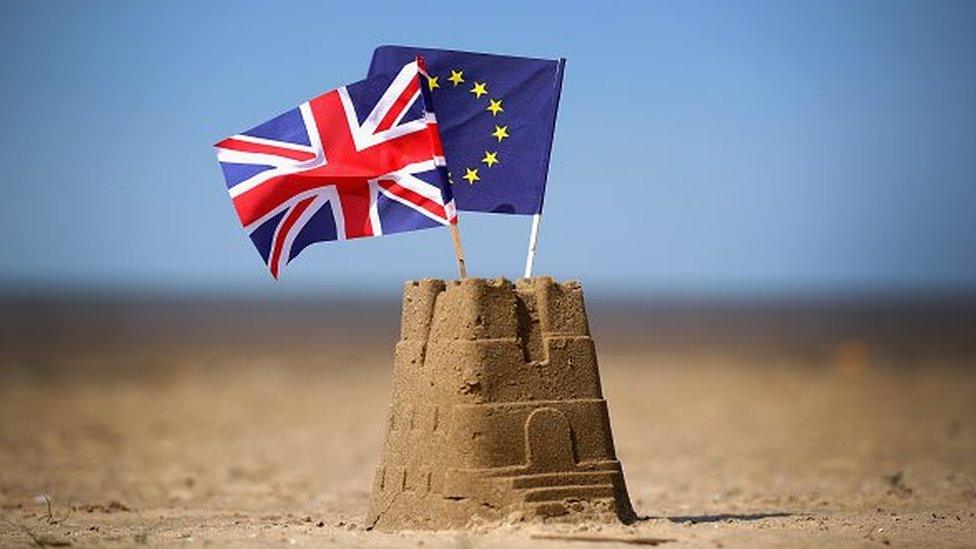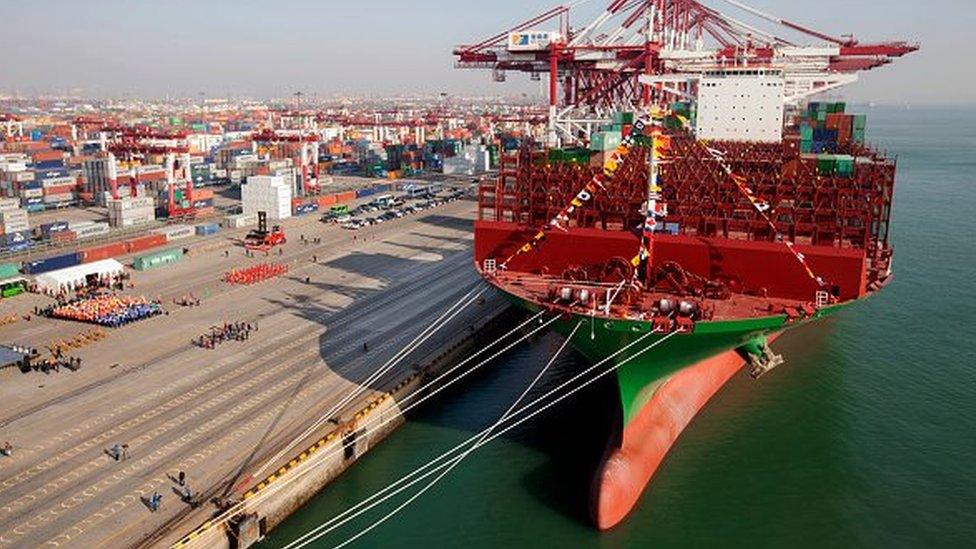Brexit 'could lead to 18% house price slump'
- Published

A Treasury analysis of the "short term" economic impact of leaving the EU will claim that house prices could be 18% lower than under a remain scenario.
The BBC can reveal the report, to be released next week, will argue that Brexit would create a series of economic shocks which would have an impact on housing, employment and wages.
Mortgage rates would also rise, it claims.
George Osborne told me that in the event of Britain leaving the EU there would be an "immediate shock" to the economy, increased uncertainty and financial market turmoil.
That could lead to "people being poorer" and a fall in house prices.
"Next week the Treasury is going to publish an analysis of what the immediate impact will be and one consequence of leaving the European Union is that there would be a hit to the value of people's homes of at least 10% and up to 18%," he said, speaking at the G7 summit of finance ministers in Sendai, north Japan.
"At the same time mortgages will get more expensive, and mortgage rates will go up."

Many economists dispute that, saying the Bank of England may actually reduce interest rates to provide an economic stimulus in the event of a Brexit.
That could lead to lower mortgage rates, although the Treasury argues that if financial conditions deteriorated more generally, borrowing costs could increase for banks and that may lead to higher costs for homeowners.
Supporters of Britain leaving the EU argue that taking the "froth" off house prices would be good for people struggling to get on the housing ladder, and lower levels of immigration over the longer term would reduce demand, making house buying easier.
I asked the Chancellor if lower house prices could actually be seen as a positive thing, particularly for first time buyers.
"You don't get affordable homes by wrecking the economy," he told me.
The average house price in the UK is just under £300,000.
That is expected to rise between 8% and 10% over the next two years, meaning that under the Treasury Brexit scenario, house prices could actually fall in absolute terms.
Many who say buying a home in the UK is far too expensive may welcome that.

Mr Osborne also said that any negotiations with the other 27 states of the EU if Britain were to leave would be costly.
There is expected to be a bill attached to that in the Treasury analysis.
"It is absolutely clear if you speak to finance ministers here, from France, from Germany, from other European countries, that if Britain left the EU and wanted access to the single market - the access we need for jobs and investment at home - then we would have to pay into the EU budget and we would have to accept free movement of people," he said.
That position was backed up by Michel Sapin, the French finance minister, who told me that it was wrong to believe that the UK would gain access to the single market without the "free circulation of people".

Although he said negotiations would be "friendly", there would be a bill for the UK to pay.
"It is an illusion to think that by having a free trade negotiation you will have more than what you have right now," he said.
Backers of Britain leaving the EU say that Britain would fare better outside the constraints of the present single market, and would be able to agree free trade agreements similar to those signed by countries such as South Korea.
It is also pointed out that America and China, which do not have separate deals with the EU, also have strong trading relationships with the single market.